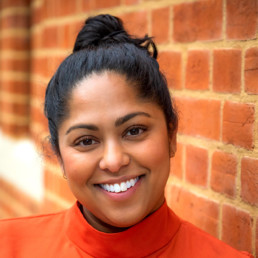
Written by Bilkis Miah
Bilkis brings a powerful perspective to the table, shaped by her upbringing as a British-Bangladeshi immigrant. With experience in both management consulting and the education sector, she offers a rare blend of expertise and cultural insight. Her unwavering commitment to breaking down barriers and challenging norms has positioned her as a powerful voice for change. Bilkis is not just a thought leader, but a driving force for positive impact, inspiring and empowering communities everywhere to re-imagine what is possible.
Inclusivity, or ‘wokeness’ as it’s come to be known, isn’t political correctness gone mad, it’s an essential move for our children.
To see how ‘wokeness’ is perceived in education, you only have to open the newspaper to see that Robert Halfon, Chair of the Education Select Committee, condemned the use of the term ‘white privilege’ last year. Halfon claimed – and this is as much as I can agree on – that there is an ‘opposite reality [to privilege] for the white working class across society’.
But surely this is a question of semantics? Isn’t it more important to make sure we’re not entering a class war, and pitting one group against another? Using terms like ‘white privilege’ isn’t the reason why so many white working-class children are failing. It’s a systemic problem, including underfunded schools, economic inequality, and the lack of opportunities for social mobility.
Understanding communities
So, what’s even more important is that we come up with initiatives and programmes that help future generations. For this to work, it’s important to listen to the community, such as teachers and parents, but also to ask children what they need. We need to understand the context that is breeding such inequalities, and let communities know that their voices are being heard. We’re all complex and layered humans, and there are nuances to navigate. For example, in Tower Hamlets where we’re based, there is a majority British-Bangladeshi and white working-class population. Things like living in an intergenerational home, or having parents who have little or no formal education are real issues that our children have to deal with. When we asked parents what they were worried about, it was the same common theme – they were worried about losing their children to a world they didn’t understand.
But there needs to be impact on beliefs and understanding the community has over these issues. It has to reach communities beyond the school gates, it can’t just be up to teachers. This is where we saw an opportunity to take parents and carers from all backgrounds on a journey to clearer awareness; one that helps communities understand what we mean by diversity and inclusion and to have the tools they need when they come across it in their lives. We do through our home activity kits. The kits encourage families and children to think and learn about themselves and the world around them through fun, paper-based activities. Importantly it doesn’t centre around having digital access – digital poverty in our community is a real obstacle – rather, the focus is on spending quality bonding time away from the screen through activities like journaling, reading and art to name but a few.
Real-world wokeness
Last year we saw St Paul’s Girls School renaming their ‘head girl’ position to ‘head of school’. This may seem like a superficial change, but the reasons behind it are key. And no, this isn’t ‘political correctness gone mad’. It’s really important that we don’t define our pupils by gender, race, religion, sexuality, class or ability. All the stereotypes that come with these narrow categorisations have wider societal implications. By changing the title from ‘head girl’ to ‘head of school’, staff are saying to their pupils, ‘We recognise you, and you can achieve anything regardless of your gender’. It’s not boxing girls into certain roles, or qualifying success with terms like ‘girl boss’ – you’re a boss, period. This is so important when we think about a healthy, diverse workforce for the future. Even in our pilot project, we’ve heard comments from children such as “Boys will have more important jobs as they have bigger brains.” Statements like these may seem inane, but it’s essential to dismantle them as soon as you notice them, so they don’t have the opportunity to entrench further.
Importantly, when you’re talking about making sure to teach about stereotypes at school, and embedding this into school policy, make sure to take families on the journey with you. It never ceases to amaze me how many schools don’t necessarily ask parents the tough questions: ‘What worries you?’, ‘What are your main concerns around teaching about stereotypes?’. Not only does this let families feel heard, but it allows you as the teacher to understand their concerns, and have the opportunity to allay some of those fears. More often than not, parents want the same as you – for their children to have all options open to them.

